I’m enjoying ACCA, which has more style and more subtlety than any dozen randomly selected anime you might draw out of a hat. But I confess that my enjoyment right now is strictly intellectual – the series is so obviously bemused with itself that it’s hard to muster much emotional connection to it. That’s in contrast with a show like Shouwa Genroku Rakugo Shinjuu or Boku Dake ga Inai Machi, where the engagement is 100% on both the intellectual and emotional levels.
For myself, I would argue that for a show to be truly great it almost has to be able to do both – that, or be so intellectually astonishing that it’s carried across the line by that aspect alone. I would argue that Production I.G.’s work has often frequented this channel over the years – brilliant but distant – but even a series which some might call cold and intellectual like Ghost Hound achieves greatness (in my view) because it’s able to close the emotional circuit. There’s nothing to say ACCA 13-Ku Kansatsu-Ka won’t do that too in its remaining eight episodes, but at this point I’d consider it a mild upset if it did.
I’m certainly engaged with the story here, that’s for sure – and it continues to prove almost bottomless in its depth of complexity. As we pick up the tale Jean is on an audit in Suitsu, which is unlike all the other districts of Douwa in being a semi-autonomous state. There’s a lot of real-life analogs one could draw here – an isolated nation-state, frozen in time by a nobility determined to maintain an order that sees them as wealthy and privileged while the majority of the populace are somewhere between peasants and serfs. If you imagine a cross between Louis XVI’s France and modern North Korea, you’d come pretty close to Suitsu.
I’ll say this much – in Jean Otus ACCA 13 has the perfect protagonist, because he matches its tone perfectly (or perhaps helps set it). No matter how the whirlpool roils around him Jean remains eerily calm – hands in pockets (when not holding a cigarette), half-smile on his face, blue eyes twinkling. Rarely has a character’s face so epitomised a series as Jean’s does with ACCA – placid, mischievous, always the hint of something simmering beneath the surface. Even as he becomes involved in a coup d’etat (no, not that coup d’etat), even taken prisoner by the plotters, there’s not an ounce of panic.
Suitsu is certainly an interesting place. Its populace is forbidden to travel abroad, technology is virtually non-existent and cell phones are banned, and the people are forbidden even to talk to outsiders. It’s no wonder rebellion simmers here (as it apparently has for a century, through a string of failed coups), though it’s perhaps a surprise that the non-native ACCA vice-chairman, Warbler (Hino Satoshi) is at the heart of it. Jean seems legitimately to be swept along in this unexpectedly, but clearly he has some sympathy for the cause – he even helps to make his case with his captors by declaring that the rich businessmen in his building would love to see Suitsu open up for outside plundering (it doesn’t get any more real-world than that).
As always with ACCA, the larger secrets are never far from mind. Niino is certainly in Suitsu – he saves Jean from being accosted by rebels during their failed uprising (does Jean recognize him? I believe so). Lilium’s older brother (Inoue Kazuhiko) is involved with the corrupt Suitsu district representative in the capital. And Jean’s hands are obviously in places they’re not supposed to be – exchanges are happening with him, one hand washing the other in secret. The only question is just what Jean is involved in and what he isn’t. Meanwhile the Prince has his flunkies stalking Lotta, which is sure to be a major plot thread going forward. Last week I referred to ACCA 13-ku Kansatsu-ka as a placid body of water that was churning underneath; if I were to make an analogy for Douwa, it might be a beautiful piece of fruit whose skin was flawless, but whose inside was rotting from the core outwards.


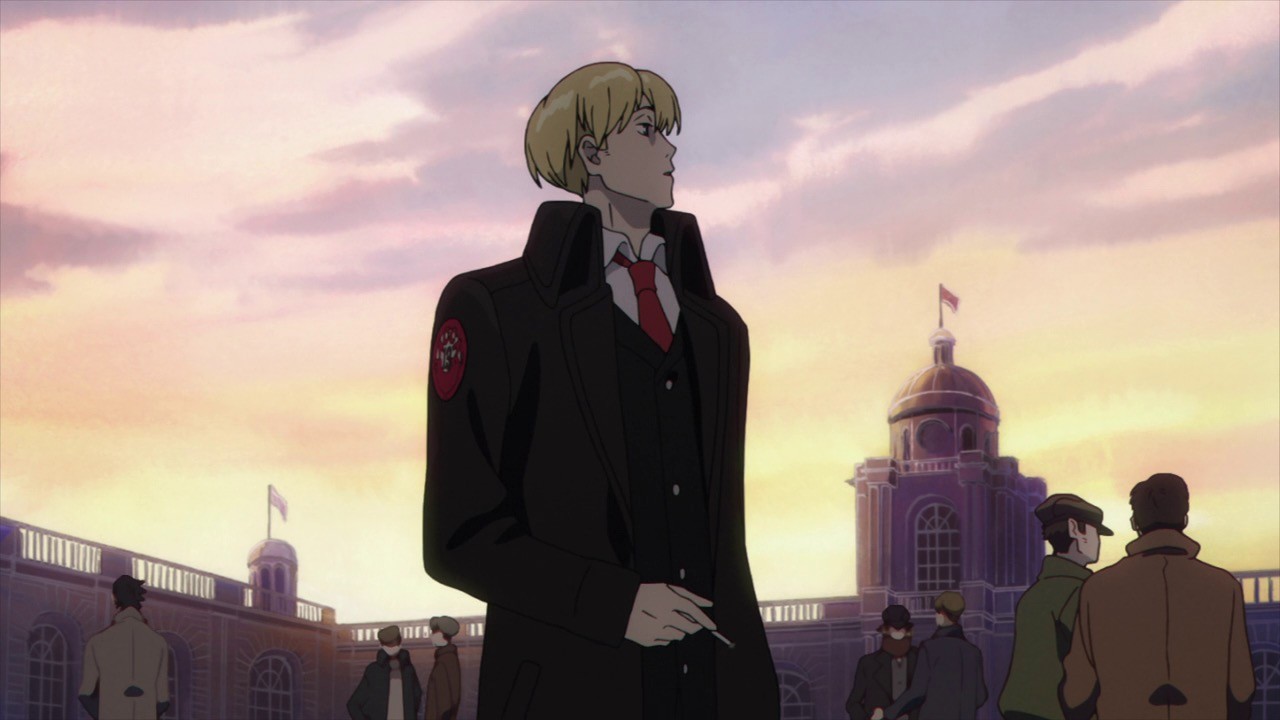
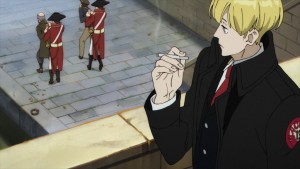
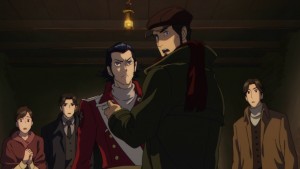
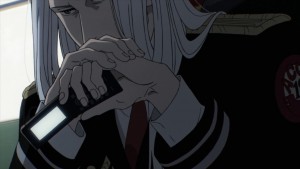

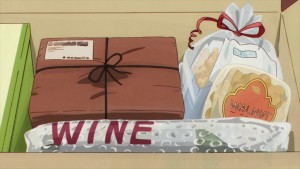
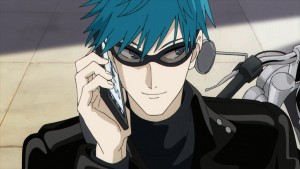
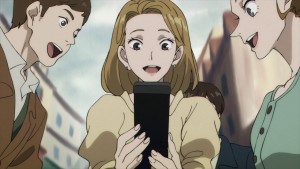
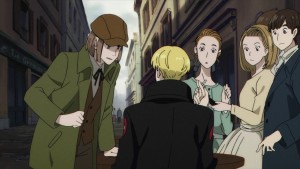
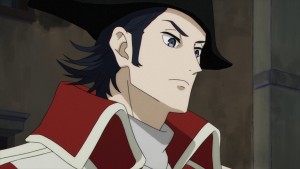
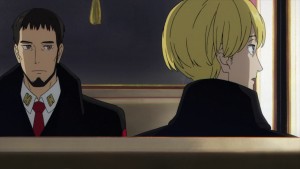
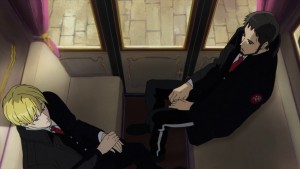
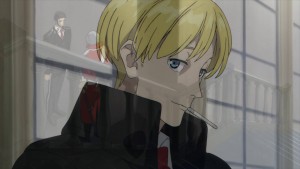
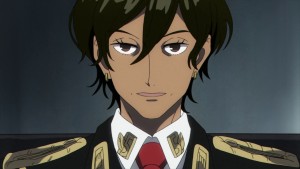

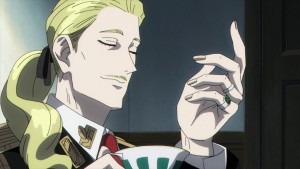
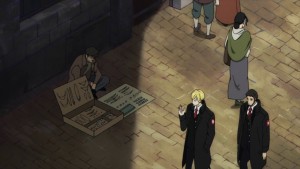
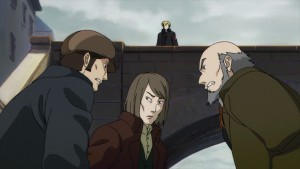
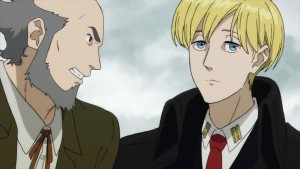
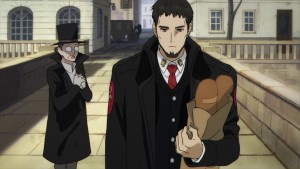
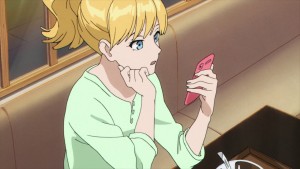
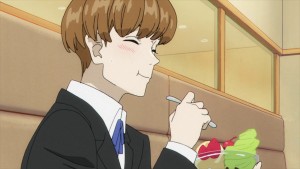
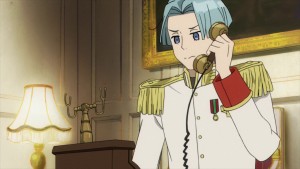
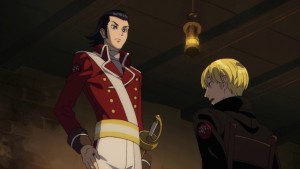
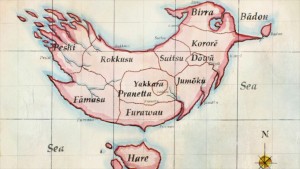
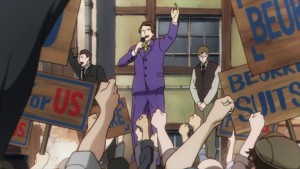
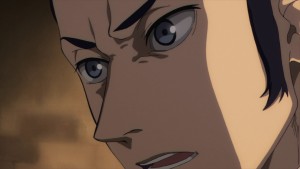
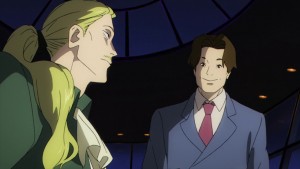
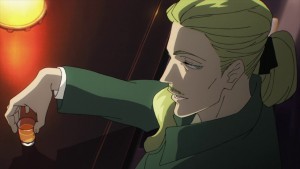
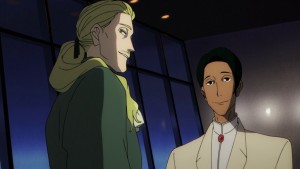
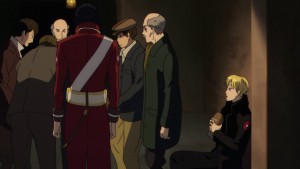
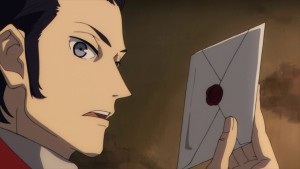
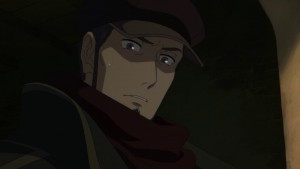
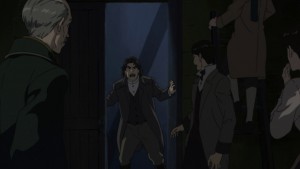
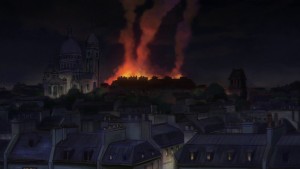
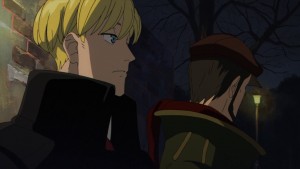
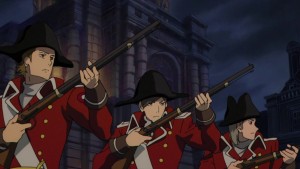
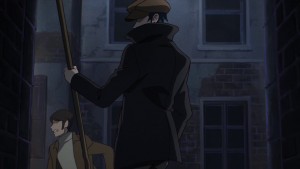
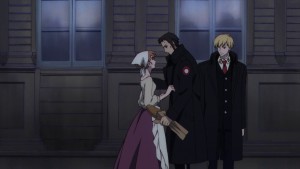
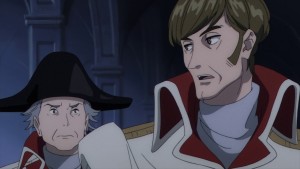
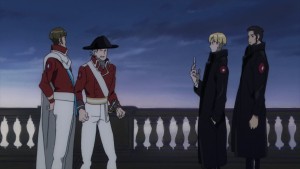
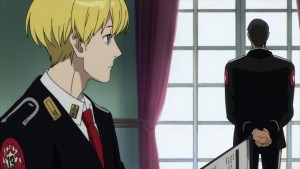
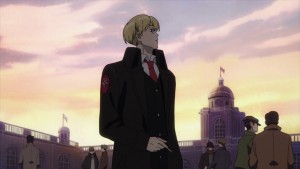


Flower
January 31, 2017 at 10:36 pmInteresting … while I am not engaged in it intensely, it does seem that I am engaged in the series emotionally a bit more than you, but like you it is not “intense” – the story is an intellectual immersion to be sure, though.
Even so, your characterization of the ACCA 13-ku anime hits the nail on the head in my opinion.
Pity it has not clicked for you as … hrm … completely or thoroughly, I suppose, as some other series have.
Rita
February 1, 2017 at 12:06 amI’m reminded of the Sherlock Holmes age of detective novels (such as Agatha Christie and of course Conan Doyle) where the idea of a mystery as a puzzle was the main form of engagement. The emphasis was on untangling logical ruses and alibis, but there was no need for emotional attachments (and in fact many of the characters didn’t react to the death or crime itself, no grieving, no panic just reacting as pieces for the puzzle). The interest was in watching someone perform feats of logic and deduction.
ACCA is very different from that, as this isn’t so much a ontological mystery as a absolute mess of a hodgepodge of political, social, and personal connections and conflicting ideals and lies and half-truths all thrown into a powderkeg. I’m personally also emotionally invested but I think it’s actually a strong statement to the series’ merit that just the sheer depth of what could lie underneath the calm surface is enough of a curiosity drive that I’d totally binge even without any emotional attachment, just like a really good (old style) detective novel could (and I mean old style, the whole PI re-invention of the genre was in some ways a rebellion against having these stories be so clinical and were in many cases more about the characters and emotions than the mystery, though both types are equally compelling in my eyes)
Zilla
February 1, 2017 at 6:20 amACCA wasn’t one of the series I was even considering watching until Enzo and several other reviewers mentioned they were interested in it. So I had very low expectations for it, and I think that is the reason I am liking it even though it’s a bit like a professor’s dry lecture. (I mean, yes, exciting things happened, but they didn’t seem all that exciting). I’m interested in seeing where it goes.